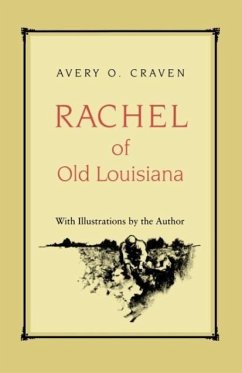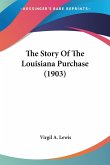Rachel O'Connor was an extraordinary woman. For nearly fifty years (from 1797 to 1846), she lived on a plantation near Bayou Sara in Louisiana's West Feliciana Parish. And for twenty-five of those years, after the death of her husband, she managed the plantation alone. Although they had, as she said, "begun poor," at the time of her death she owned about a thousand acres and seventy-five slaves. Not a biography in the conventional sense, Avery O. Craven's charming little book is rather the story of Rachel and the Louisiana in which she lived. Based largely on several hundred of her letters, it tells of her day-to-day activities, her relationships with slaves and overseers, her successes and failures with crops, as well as her health and legal problems. By focusing on the life of one woman, Craven brings to light the thoughts, emotions, and attitudes of Louisianians (and other southerners) during this period. Rachel of Old Louisiana is a significant addition to the literature on the Old South.
Hinweis: Dieser Artikel kann nur an eine deutsche Lieferadresse ausgeliefert werden.
Hinweis: Dieser Artikel kann nur an eine deutsche Lieferadresse ausgeliefert werden.


![A Short Memoir of James Young, Merchant Burgess of Aberdeen, and Rachel Cruickshank, His Spouse, and of Their Descendants [&c. Signed A.J.] A Short Memoir of James Young, Merchant Burgess of Aberdeen, and Rachel Cruickshank, His Spouse, and of Their Descendants [&c. Signed A.J.]](https://bilder.buecher.de/produkte/68/68938/68938935m.jpg)





